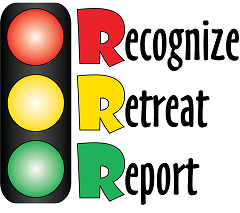Too often, collectors, treasure hunters, history buffs, and veterans unknowingly put themselves, their families, and their neighbors in danger by keeping munitions as souvenirs. Mistakenly, individuals often assume munitions kept as souvenirs are safe because they are often old or have been frequently moved or handled. Simulators used by the military and police in training are also very dangerous and should never be picked up and kept as souvenirs.
No matter what you call them [ammunition, souvenir, war trophy, training rounds, simulators, duds or unexploded ordnance (UXO)], munitions are dangerous and too often prove lethal. Regardless of how long munitions have been kept or how frequently they have been handled, they remain dangerous.
The potential dangers of keeping munitions as souvenirs were tragically demonstrated in California in 2006. In this incident, two children were killed and several others injured when a souvenir with which they were playing exploded. An adult, who had kept the munition as a souvenir for over 15 years and thought it was safe, allowed the children to play with it. This is one of many examples where someone did not know the hazard associated with a munition that had been kept for years as a souvenir and its last handling resulted in death or injury of an individual, a family member, friends, or community members, or caused damaged property. Even Civil War cannonballs can prove to be deadly souvenirs. Unfortunately, collectors often only realize the hazard posed by souvenir munitions after a tragic accident.
Do not take munitions home or to the office as souvenirs. If you or your family has a munition or several munitions as souvenirs, even if kept for years, please call 911 or local law enforcement to report it. The police will arrange for support from a Department of Defense Explosive Ordnance Disposal (EOD) unit or a civilian bomb squad to retrieve the munition and destroy it safely. In most cases, only specially trained EOD or bomb squad personnel are able to determine the dangers associated with a munition. Throwing munitions in the trash or discarding them in parks or wooded areas places your community and the public in danger.
Soldiers, Marines, Sailors and Airmen are reminded that most military installations have established amnesty programs, where munitions taken as souvenirs during training or deployments may be turned in anonymously.
Remember, munitions are most likely present in areas such as training ranges on active or former military installations, but they can be encountered almost anywhere. To protect yourself, your family, your friends and community, the Department of Defense recommends you follow and teach your children to follow the 3Rs of explosives safety.
FOLLOW THE 3Rs
RECOGNIZE: when you may have encountered a munition and that munitions are dangerous.
RETREAT: do not approach, touch, move or disturb it, but carefully leave the area.
REPORT: call 911 and advise the police of what you saw and where you saw it.

